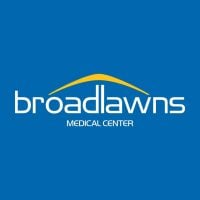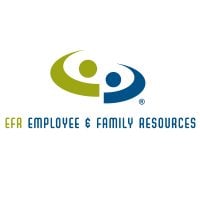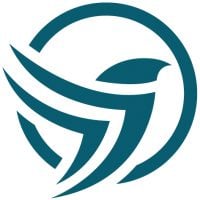
Living Recovery
Drug Rehab Center in Clive, Iowa
- Substance Abuse
- Opioid Addiction
- Dual Diagnosis
- Drug Addiction
- Alcoholism
Living Recovery in Clive, Iowa is a CARF-accredited and licensed substance abuse treatment facility that provides comprehensive inpatient and outpatient programs, evidence-based therapy, medication-assisted treatment, and emphasizes long-term recovery plans with aftercare programs and alumni support.
About This Iowa Facility
Living Recovery in Clive, Iowa provides comprehensive treatment for addiction and substance abuse. The facility provides a full range of inpatient and outpatient services for both individuals and families. The inpatient program tailors the treatment plan to the individual and the type of addiction, utilizing evidence-based practices such as cognitive behavioral therapy, group therapy, and addiction education. For those seeking outpatient services, Living Recovery offers a range of programs, from intensive outpatient services to individual counseling, as well as support groups to help individuals stay on track.
Living Recovery focuses on creating long-term recovery plans that offer a framework for sustainable sobriety. This includes various methods to help individuals break through the cycle of addiction and identify any underlying issues that may be contributing to substance abuse. Living Recovery also provides medication-assisted treatment to help individuals transition out of the toughest stages of addiction. Additionally, there are relapse prevention services to help individuals stay on track and reduce the risk of substance abuse in the future.
Living Recovery is accredited by CARF International, the Commission on Accreditation of Rehabilitation Facilities and is licensed by the Iowa Department of Public Health. Also, the facility has been recognized by the National Institute on Drug Abuse as a treatment center with an emphasis on evidence-based practices. Furthermore, the facility offers aftercare programs and alumni support to ensure long-term success for those in recovery.
Genders
Ages
Modality
Additional
Conditions and Issues Treated
People who abuse drugs are likely to suffer from an addiction, which can cause serious health problems. When it comes to helping drug abusers get sober, there are many options to choose from. It is essential to state that there is no “”correct”” way of doing things. People are different, and they need different types of help to get over their addiction.
Many people who struggle with opioid addiction need to attend specific programs like methadone , Suboxone or Vivitrol clinics.
These types of programs will provide the patient with legal, prescription medications that can help them overcome their cravings for illegal opioids like heroin or fentanyl . If the patient has a chronic condition like Hepatitis C, they must undergo treatment before they can begin taking these medications.
Dual Diagnosis refers to someone who is both dealing with addiction and another mental health issue.
There are different kinds of Dual Diagnosis: A person who simultaneously experiences both a mental illness and an addiction disorder. Or, a person who experiences one or more coexisting (simultaneous) mental health conditions in addition to a primary substance use disorder.
Some conditions that commonly co-occur with addiction include:
- Personality Disorders (Borderline, Narcissistic)
- Mood Disorders (Bipolar Disorder, Depression, Anxiety Disorder)
- PTSD (Post Traumatic Stress Disorder), OCD (Obsessive Compulsive Disorder), ADHD (Attention Deficit Hyperactivity Disorder)
- Schizophrenia, Psychosis, Hallucinations, Delusions
Levels of Care Offered at Living Recovery
This center offers a variety of custom treatment tailored to individual recovery. Currently available are Drug Rehab, Dual-Diagnosis, Intensive Outpatient, Outpatient, with additional therapies available as listed below.
Outpatient addiction treatment is beneficial for people who are able to function well in their day-to-day lives. It is recommended for people who are not yet ready to end their relationships with friends or family members who might be encouraging drug and alcohol use.
Intensive outpatient treatment is beneficial for:
- People who are able to attend treatment more than 3 times per week.
- People who do not meet the criteria for inpatient treatment.
- People who are able to contribute to their own recovery outside of the treatment center.
- People who are motivated towards recovery.
- People who are able to overcome addiction on their own without the need for higher levels of care.
Outpatient treatment programs provide drug and alcohol addiction treatment through individual sessions with a counselor, group therapy, 12-step meetings, and other activities to help individuals gain sober living skills. Most programs are designed for those individuals who have completed a medically supervised detoxification program and provide opportunities for clients to begin the process of early recovery.
Outpatient programs also offer a level of medical support as needed and psychological backing through therapy. Clients are encouraged to live at home, though there may be some flexibility regarding this requirement based on the circumstances and needs of each patient.
Outpatient treatment is perhaps the most common type of dual diagnosis program available. It does not pose a significant financial burden on patients. However, it is essential to note that outpatient treatment does not provide the support and supervision given in residential programs. Some addicts may need this level of support to maintain their sobriety.
Therapies & Programs
Therapy sessions focused on the individual addict can provide much-needed guidance as they work toward overcoming their addiction. These types of sessions typically involve guidance from a therapist, who will help addicts identify and process their feelings and cravings.
During these sessions, addicts may develop plans for coping with the triggers that typically lead to relapse and learn how to avoid those triggers during their recovery process.
Different types of addiction treatment services are available. Within this article, group therapy is of interest due to its high success rate compared to individual therapy. Group therapy settings are beneficial because they allow recovering addicts to build a strong support network.
Benefits of group therapy are:
- Reduces feelings of isolation
- Immediate access to social support in the form of fellow addicts in recovery
- Lowers risk of relapse
- Increases rate of sobriety
- Builds coping skills that can be applied to everyday life
Payment Options Accepted
For specific insurance or payment methods please contact us.
Additional Details
Specifics, location, and helpful extra information.
Clive, Iowa 50325 Phone Number(515) 402-5422 Meta DetailsUpdated November 25, 2023
Staff Verified
Patient Reviews
There are no reviews yet. Be the first one to write one.
Clive, Iowa Addiction Information
Iowa ranks 2nd lowest in the nation for illicit drug use, but 12% of its residents are still using these drugs every single year. Methamphetamines account for more than 90% of all drug-related prison admissions in Iowa. Alcohol is the most widely abused substance in the state, with 23% of residents admitting to heavy drinking.
Treatment in Nearby Cities
- Bayard, IA (45.8 mi.)
- Manning, IA (71.8 mi.)
- Iowa City, IA (114.0 mi.)
- Guthrie Center, IA (40.0 mi.)
- Shenandoah, IA (103.3 mi.)
Centers near Living Recovery
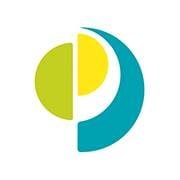
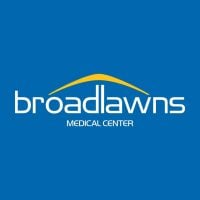

The facility name, logo and brand are the property and registered trademarks of Living Recovery, and are being used for identification and informational purposes only. Use of these names, logos and brands shall not imply endorsement. RehabNow.org is not affiliated with or sponsored by Living Recovery.

